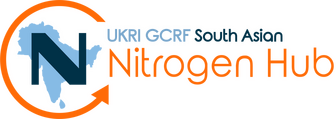Managing reactive nitrogen (Nr) to achieve a sustainable balance between production of food, feed and fiber, and environmental protection is a grand challenge in the context of an increasingly affluent society. Here, we propose a novel framework for national nitrogen (N) assessments enabling a more consistent comparison of the uses, losses and impacts of Nr between countries, and improvement of Nr management for sustainable development at national and regional scales. This framework includes four key components: national scale N budgets, validation of N fluxes, cost-benefit analysis and Nr management strategies. We identify four critical factors for Nr management to achieve the sustainable development goals: N use efficiency (NUE), Nr recycling ratio (e.g., ratio of livestock excretion applied to cropland), human dietary patterns and food waste ratio. This framework was partly adopted from the European Nitrogen Assessment and now is successfully applied to China, where it contributed to trigger policy interventions toward improvements for future sustainable use of Nr. We demonstrate how other countries can also benefit from the application our framework, in order to include sustainable Nr management under future challenges of growing population, hence contributing to the achievement of some key sustainable development goals (SDGs).
